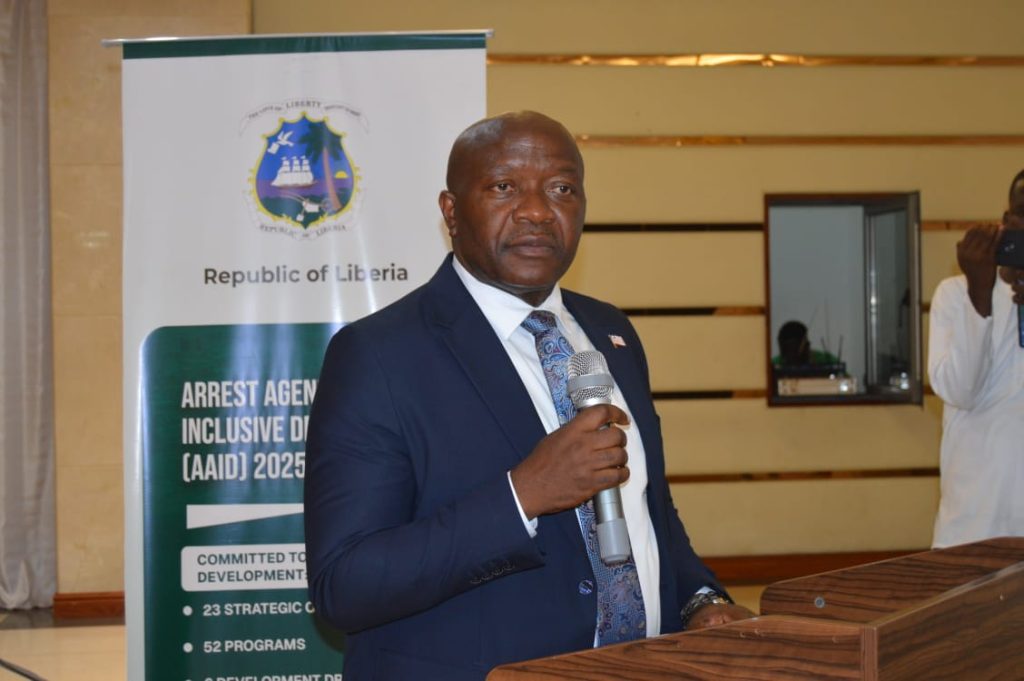The Liberian government’s $12 million financial rescue package for SIB Liberia Limited has sparked a heated debate, dividing public opinion between those who see it as a necessary intervention to stabilize the financial system and those who criticize it as a dangerous precedent. Finance Minister Augustine Kpehe Ngafuan has staunchly defended the bailout, emphasizing its importance in protecting depositors, preventing a wider economic crisis, and safeguarding the overall financial stability of the nation. He argues that the potential consequences of inaction, including the potential collapse of the bank and its ripple effects throughout the economy, far outweigh the risks associated with the bailout. Ngafuan has underscored that the Central Bank of Liberia (CBL) played a crucial role in the bailout process, and discussions are ongoing regarding the terms of the assistance, specifically whether it will be categorized as a loan or a grant.
The bailout itself comprises $8 million in direct funding and an additional $4 million in guaranteed default coverage, effectively providing a safety net against potential losses. This intervention, according to Minister Ngafuan, reflects a sound economic strategy designed to mitigate the negative impact of a struggling bank on the livelihoods of Liberians. He maintains that when a financial institution faces significant difficulties, the government has a responsibility to intervene and stabilize the situation, preventing a domino effect that could cripple the broader economy. Ngafuan, a former bank official, further clarified that the CBL operates as an independent institution and did not require direct presidential approval for the bailout, although discussions between SIB executives and the Boakai administration, facilitated by former Finance Minister Boimah Kamara and CBL Governor Aloysius Tarlue, preceded the intervention.
However, the government’s decision has drawn criticism, particularly from former Auditor General John Morlu, who describes the $12 million package as a “dangerous precedent.” This concern stems from the fear that such interventions could become commonplace, creating a moral hazard where banks take excessive risks knowing the government will ultimately bail them out. Critics also question the transparency and accountability of the process, raising concerns about the potential for misuse of public funds. The swiftness of the bailout, prior to establishing clear repayment terms, has also fueled skepticism and calls for greater scrutiny.
Minister Ngafuan acknowledges the criticisms but maintains that the potential consequences of inaction justified the swift intervention. He emphasizes the government’s commitment to protecting Liberia’s resources and ensuring that the bailout funds are recovered if the bank recovers and returns to profitability. He also highlighted the difficulties the Liberian government has faced in its dealings with local banks, including allegations of unpaid interest on government loans, adding another layer of complexity to the situation. The government’s rationale for the bailout rests on the premise that a healthy banking sector is essential for economic stability and growth.
The debate over the SIB Liberia Limited bailout underscores the complex challenges inherent in government interventions in the private sector. While the government’s intention may be to protect the economy and the livelihoods of its citizens, such actions can create unintended consequences, including the potential for moral hazard and the erosion of market discipline. The lack of clearly defined repayment terms at the outset of the bailout raises concerns about the long-term financial burden on the Liberian people. The government’s assertion that the bailout is a loan, not a grant, and that funds will be recouped once the bank recovers remains to be seen.
The long-term success of this intervention will depend on the effectiveness of the CBL’s oversight, the bank’s ability to return to profitability, and the government’s commitment to recovering the bailout funds. The situation also highlights the need for stronger regulatory frameworks and greater transparency in government dealings with financial institutions to prevent future crises and maintain public trust. The debate surrounding this bailout serves as a crucial reminder of the delicate balance between protecting the financial system and ensuring responsible use of public funds.














